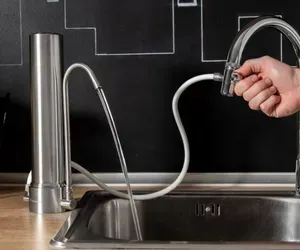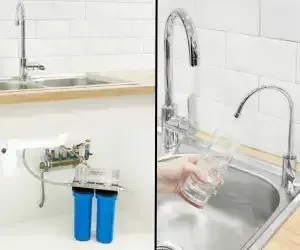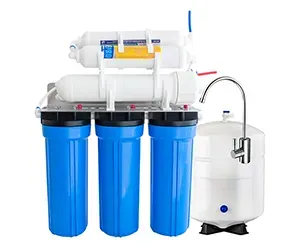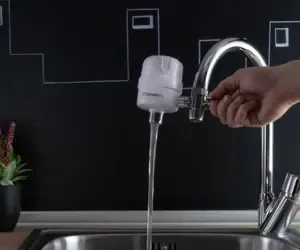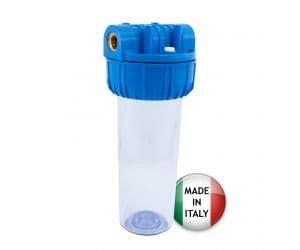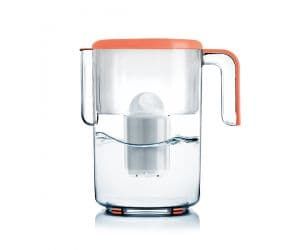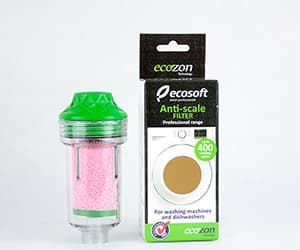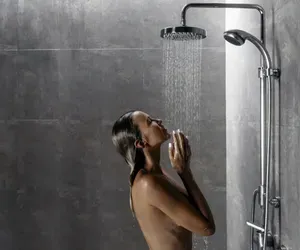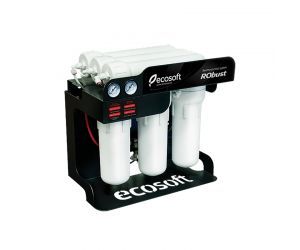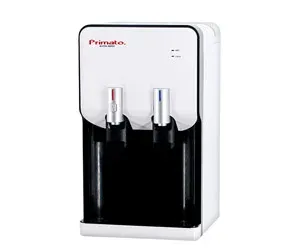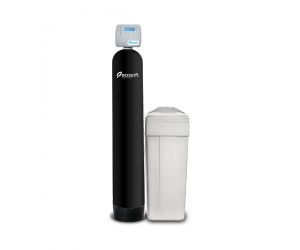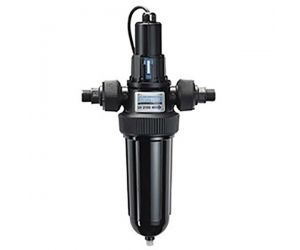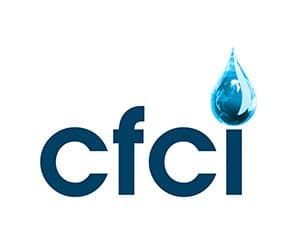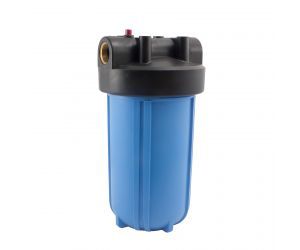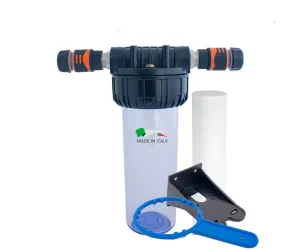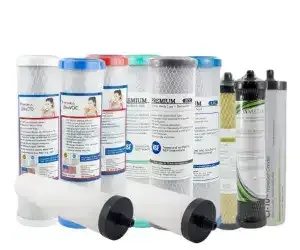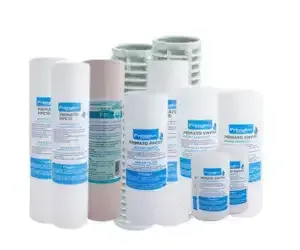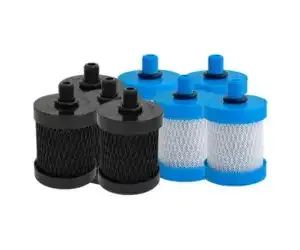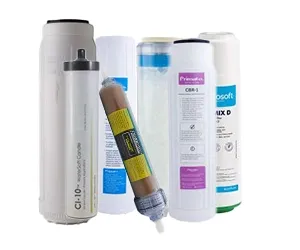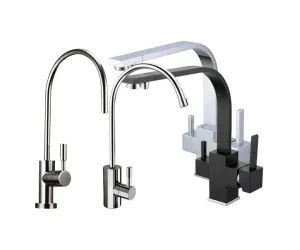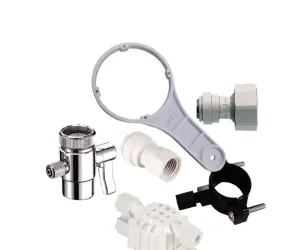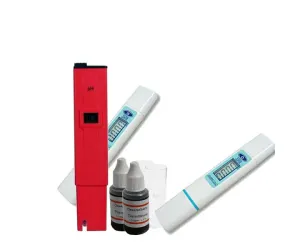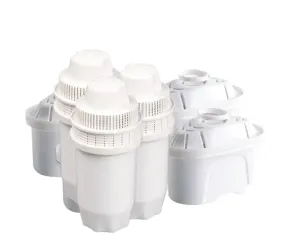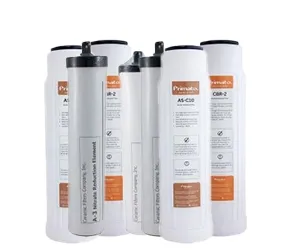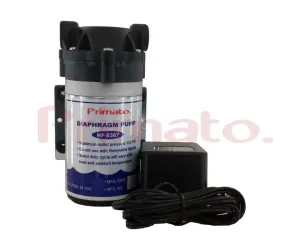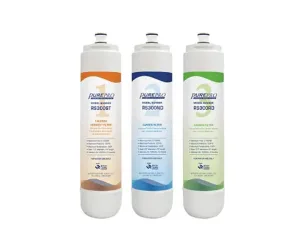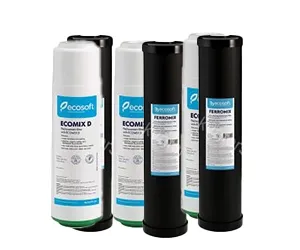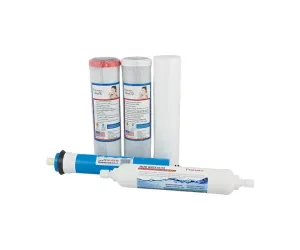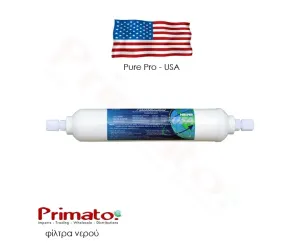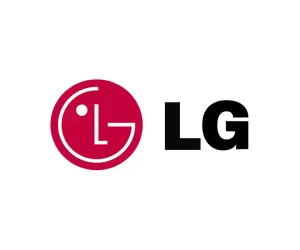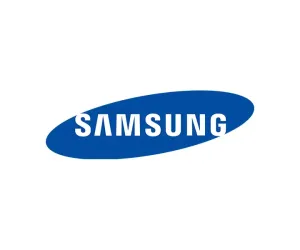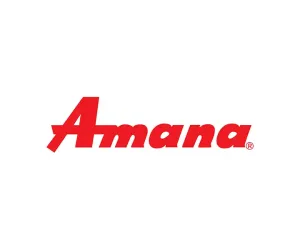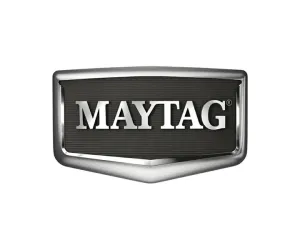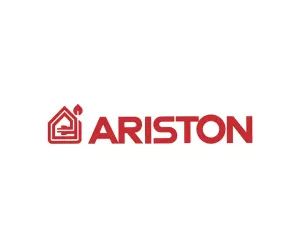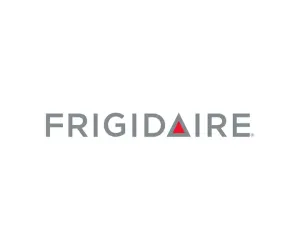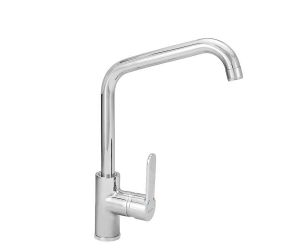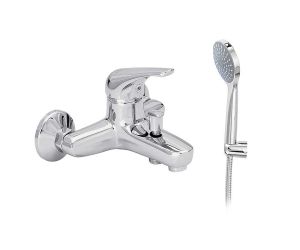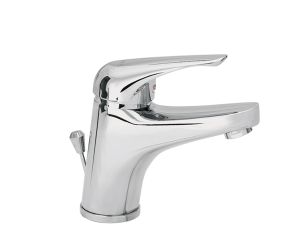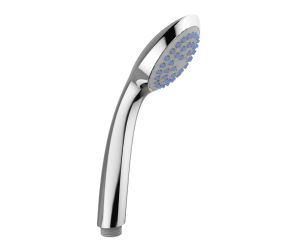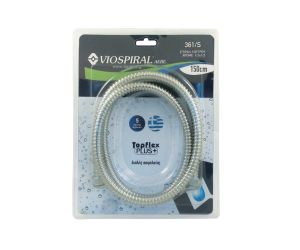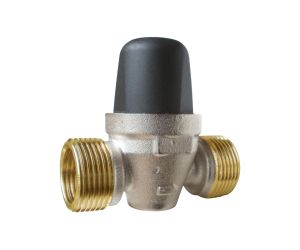What are water filters?
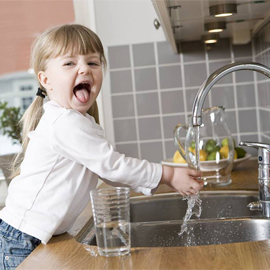
Water filters, depending on where they are installed and how many "housings" they have, treat water before it reaches our glass, reducing or removing a high percentage (some times spectacularly) of harmful chemicals and particles. Depending on your water quality, you can choose from a wide range of water filters that improve your water's taste and odour, giving you fresh and clean water.
Water filters are divided into 5 basic categories:
- Pitcher water filters (jug filters)
- Tap water filters that installed (as their name suggests) on your kitchen tap.
- Countertop water filters - They are installed in less than a minute. They are placed on your kitchen counter and are connected to your tap using a diverter (more details below).
- Under-sink inline water filters - They are placed under your kitchen sink and are connected to your kitchen tap's cold water supply, thus when you turn your cold tap on, water is filtered and purified.
- Under-sink water filters with a separate tap - These water filters are connected to a discreet tap which is installed on your kitchen counter. Every time you turn this tap on, you get filtered and purified water. You still get to use your standard kitchen tap normally (washing the dishes etc).
- Reverse Osmosis: Although they are technically under-sink water filters, RO has a special place in our heart due to its unique technology (and the fact that no one came with a better water treatment technology so far...)
Let's dig in!
Jug water filters
These pitchers have a capacity of 3 to 5 litres depending on the model and have a discreet cartridge made from activated carbon block. Some of the cartridges even have ion exchange resin that can reduce limescale. How it works: You fill the upper pitcher tank with tap water. Due to its gravity, water has to fall down to the bottom tank of the pitcher, having to go thourgh the filter cartridge first. It might need a few minutes for this to happen, but eventually you get purified water in a good looking pitcher.
Pros
- Jug filters are usually cheap
- You can store the pitcher into your refrigerator, like you would do with a bottled water.θισμένο μπουκάλι νερό
Cons
- Their cartridge needs to be replaced quite oftenly (usually about 2 months).
- Its takes a few minutes for the water to be filtered.
Tap water filters
They are installed on your kitchen tap and have a diverter or a switch, with which you can toggle between filtered and unfiltered water.
Pros
- Water is filtered instantly (unlike jug filters).
- Plenty of cartridge choises - Most brands have more than one cartridge for their housing depending on your water quality and needs.
Cons
- Frequent cartridge replacement - They usually need to be changed every 3 to 6 months depending on the brand and cartridge quality.
- It takes plenty of space around your kitchen tap and it's not recommended for short kitchen faucets.
- You can't fix it if you brake it - Most of the tap filters become victims of an evil pan on its way to be washed...We know...It's not pretty.
- Limescale is tap filter's enemy no1. You just can't unscrew the housing and remove limescale.
Countertop water filters
You don't need a plumber to install a countertop water filter. These filters are placed on your kitchen counter and are connected to your tap with a diverter. The diverter is actually a switch, with which you can toggle between filtered and unfiltered water. When you turn the diverter to the "filtered" position, water is diverted from your kitchen tap to your countertop water filter and then runs through the filter and out of its separate tap. When you turn the diverter to the "unfiltered" water position, you can use your tap normally (eg for washing the dishes). Inside the housing, there is an activated carbon block - there is a wide range of carbon blocks, different qualities and permeability. There are many carbon block knock offs in the market, so be very carefull and ask for any certifications available from the sales person.
Pros
- You don't need to drill a hole on your counter to install these filters. It's pretty much "plug and play", or in this case "Plug and enjoy fresh and clean water"!.
- There is a wide range of countertop water filters. There is at least one that will match your needs and style.
- The cartridge needs to be replaced at least once every year (contrary to tap filters of jug filters), so you don't need to worry about the frequent cartridge replacements.
- Most of these housings can house a wide list of cartridges and cartridges can fit to many housings. This gives you freedom to choose the best housing for your needs and pocket.
Cons
- You need to have some empty space around your kitchen counter. It's even more difficult if you decide to install a double or even triple countertop water filter.
Under-sink INLINE water filters
They are connected directly to your kitchen tap's cold water supply. When you turn your tap on to "cold" , water is forced to pass through the filter before it runs from your tap.
Pros
- Installing this type of under-sink water filter, means that you don't need to drill a hole for a separate tap or using valuable empty space from your kitchen counter.
- You usually don't need a plumber for the installation. You will need to have "experienced" hands though
Cons
- The filter cartridge can't last for a whole year, since you'll be using the filter every time you turn your tap on to "cold" position. Usually, cartridges last about 7 to 9 monts, depending on your water quality and use.
- We don't recommend fitting a cartridge with low permeability, because you will have pressure drop. Feel free to use any cartridge with a permeability of 5μm (microns) though. If you have water with very bad quality, you should install an under-sink water filter with a separate faucet.
Under-sink water filters with a separate tap
These water filters are placed under your kitchen sink and are connected to a separate tap, which is installed on your kitchen counter. You'll need to drill a hole to install the tap though. You can use this tap whenever you need filtered water and your standard tap for everything else (eg washing the dishes).
Pros
- Most of the water filter taps are discreet and good looking, so don't worry about messing around with your kitchen style and design.
- You can fit any cartridge you want depending on your needs and water quality, no matter how "tight" they are or their permeability.
Cons
- You have to drill a hole (1cm diameter) on your kitchen counter in order to install the tap.
- Most people usually need a plumber to install this under-sink water filter. We have videos though, in case you want to try it yourself.
Under-sink water filters with a separate tap
Reverse osmosis is placed under your kitchen sink and connected to a separate tap, much like all the under-sink water filters. It deserves its own category though, since it uses a completely different technology to remove even bacteria and viruses from your water, making it safe for everyone! It has a permeability of 0.0001 microns and since RO needs a lot of time to filter your water, you can't drinkg it immidiately. After you've installed it, you need to wait a couple of hours for the water tank to fill with purified water. Whenever you turn on the separate tap, water runs from the pressurized water tank to the tank.
Recent posts
- Well Water in Greece: What’s Really in It and How to Make It Safe
- NanoMetix 10" 0.01μm Water Filter | Advanced Nanofiltration Against PFAS & Microplastics
- The Future of Water: How Primato Filters are Pioneering New Standards in Water Safety
- Primato's Journey at Aquatech Amsterdam: Building Bridges and Expanding Horizons
- The Journey of Water: From Source to Tap - Understanding the Filtration Process
- What are three way water filter taps?
- Shower water filters
- Commercial water filters for hotels, restaurants and cafes
- The reason why more and more people prefer undercounter water filters
- Zeolites in water treatment
- The water supply network of Athens
- The whole truth about water filters
- Russian water filters with aragonite - Purchase guide
- Choosing and buying a countertop water filter
- I live in Athens. Do I need a water filter?
- Water Filter Prices: Full Guide
- Does filtered water help with allergies?
- 10+ reasons to add more water to your lifestyle!
- Zeolite: A natural mineral in the service of water filtration
- Thessaloniki Water: From the source to the glass
- Meet the Greek Water Filters Manufactured in Thessaloniki
- Water Filters with Zeolites
- Turning a coconut into activated carbon
- Thessaloniki: Which Are The Best Water Filters?
- Tap water in Greece: Is it safe? The problems and the solutions
- How to Choose the Right Replacement Filter
- Ultra filtration and Hollow Fiber Membranes explained
- How hard is water in Thessaloniki?
- Whole house water filter cartridges - How to choose the right one!
- Countertop water filters - What to look for before I buy
- Do I need a water filter if I live in Athens?
- Everything you need to know about tap water filters
- Under-sink water filters - Everything you need to know
- Reverse Osmosis - What is it and how it works
- World Water Day - 22 March
- Primato goes sailing!
- What is the activated carbon found in our water filters?
- What are water filters?
- Reverse Osmosis - Perfect for islands, drilling water and aquariums
- Hexavalent Chromium - A Carcinogen That Should Be Reduced Immediately!
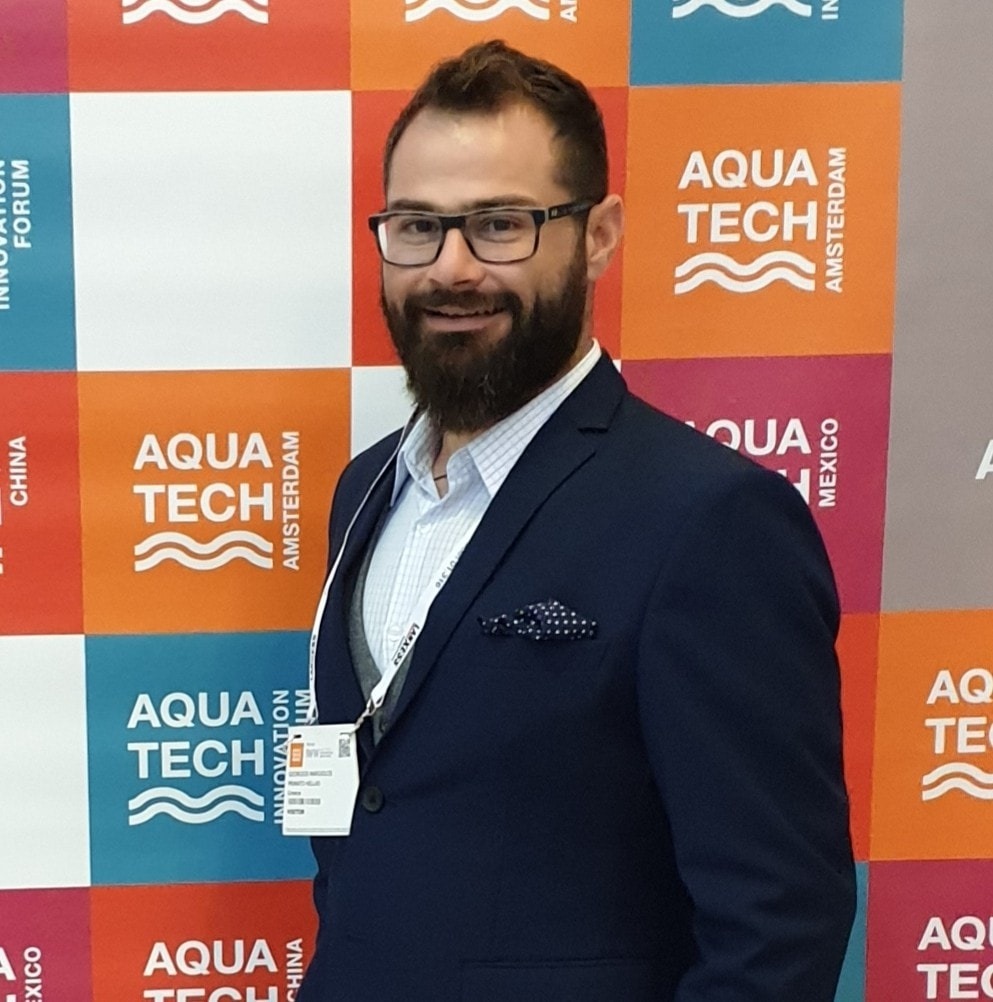
George Margiolos
George Margiolos was born in Thessaloniki and has graduated from the Department of Marketing of the Alexandreio Technological Educational Institute of Thessaloniki. He is fluent in English and (not so fluent) in German.
Ηe has been Project Manager at Avery Dennison - Fastener Division in the UK. There, his main project was to redesign the company's products into new applications so as to become more environmentally friendly. In combination with the fact that in the UK people are more familiar with water filters, he has developed a love for environmentally friendly water filters, which reduce the use of plastic bottles and improving people's quality of life.
Since 2008, he has published over 300 unique educational and informative articles on water filters and new water treatment technologies.
Occasionally, universities and doctoral students request to use George Margiolos' articles in their research because of their quality and uniqueness.
